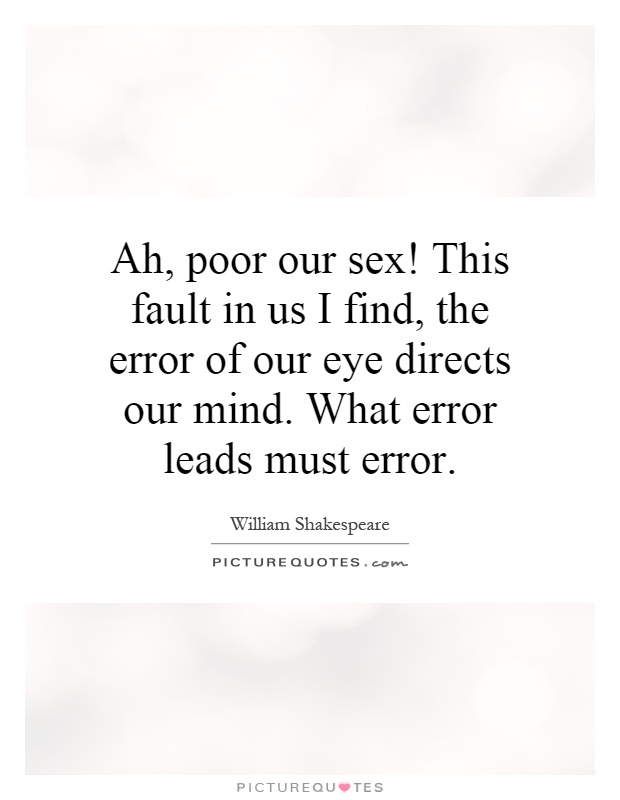Ah, poor our sex! This fault in us I find, the error of our eye directs our mind. What error leads must error

Ah, poor our sex! This fault in us I find, the error of our eye directs our mind. What error leads must error
In the world of William Shakespeare, the theme of gender roles and the limitations placed on women is a prevalent and recurring motif. In many of his plays, women are often portrayed as being at the mercy of their emotions and easily swayed by their desires. This sentiment is echoed in the quote, "Ah, poor our sex! This fault in us I find, the error of our eye directs our mind. What error leads must error."This quote, spoken by the character of Helena in Shakespeare's play "All's Well That Ends Well," reflects the idea that women are inherently flawed and easily influenced by their emotions. Helena laments the fact that women are often judged based on their physical appearance rather than their intelligence or character. She acknowledges that women are often led astray by their desires and are prone to making mistakes as a result.
The phrase "the error of our eye directs our mind" suggests that women are easily swayed by what they see, rather than what they know to be true. In a society that places a high value on physical beauty and appearances, women are often judged based on their looks rather than their abilities. This can lead to women making decisions based on what they think others want or expect from them, rather than what is truly in their best interest.
Helena's lamentation that "What error leads must error" speaks to the idea that once a woman makes a mistake, she is often judged harshly and held accountable for her actions. In a patriarchal society such as the one depicted in Shakespeare's plays, women are often held to a higher standard than men and are expected to be virtuous and pure. When a woman strays from these expectations, she is often punished and ostracized.
Overall, this quote from "All's Well That Ends Well" highlights the struggles and limitations faced by women in Shakespeare's time. It serves as a reminder of the societal expectations placed on women and the consequences of not conforming to these expectations.












 Friendship Quotes
Friendship Quotes Love Quotes
Love Quotes Life Quotes
Life Quotes Funny Quotes
Funny Quotes Motivational Quotes
Motivational Quotes Inspirational Quotes
Inspirational Quotes